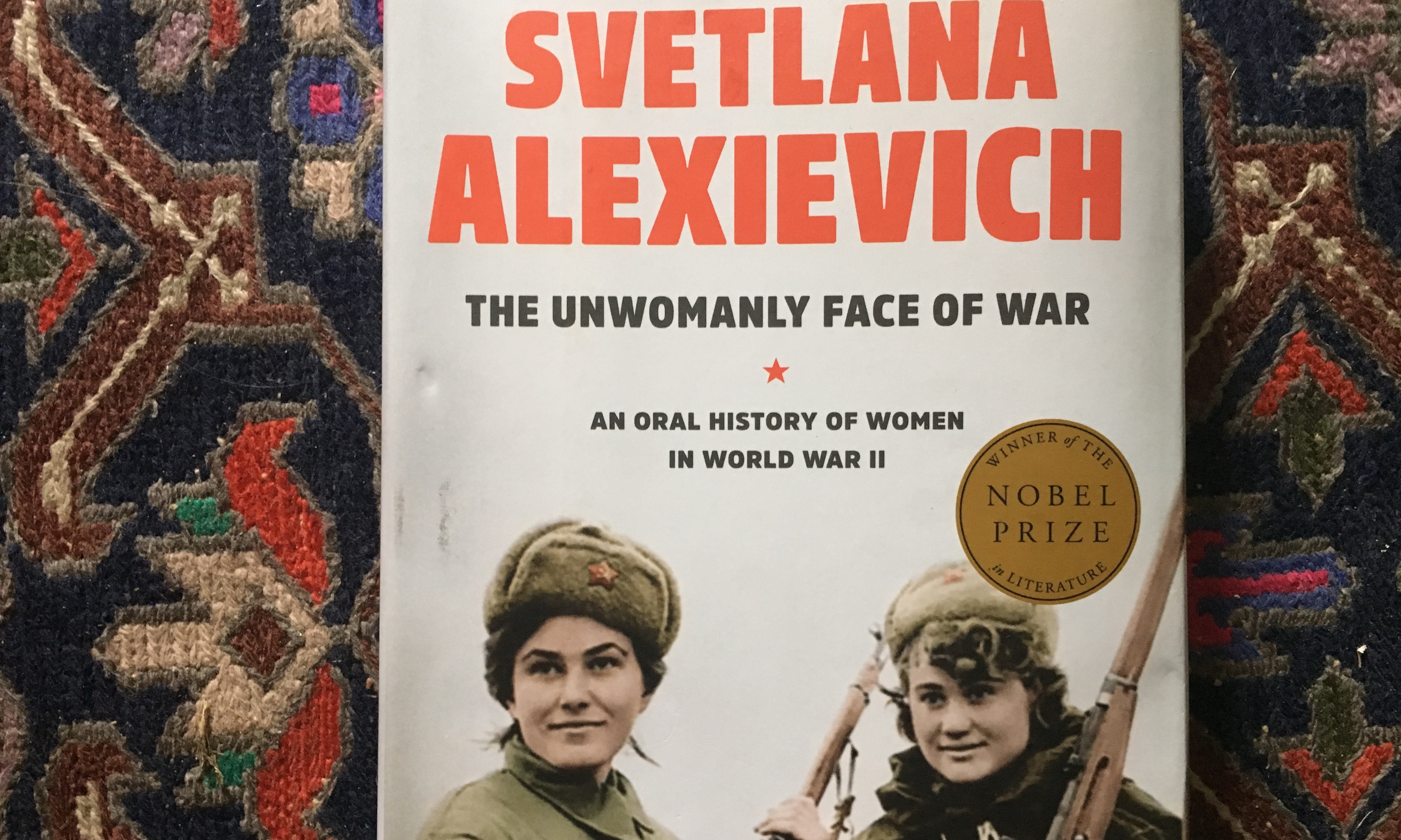a bookclique pick by Cricket Mikheev
“I write not about war, but about human beings in war. I write not the history of a war, but the history of feelings. I am a historian of the soul.” So writes Svetlana Alexievich, who was awarded the Nobel Prize for Literature in 2015 “for her polyphonic writings, a monument to suffering and courage in our time.”
This sounds quite lofty, but amazingly, it’s accurate. Alexievich collected oral histories of Soviet women who served as soldiers in the second world war. Between 1978 and 1985, she travelled throughout the Soviet Union tracking down women who were willing to discuss their military service. Here is how she describes her research:
I sit for a long time, sometimes a whole day, in an unknown house or apartment. We drink tea, try on recently bought blouses, discuss hairstyles and recipes. Look at photos of the grandchildren together. And then….After a certain time, you never know when or why, suddenly comes this long-awaited moment, when the person departs from the canon– plaster and reinforced concrete, like our monuments– and goes on to herself. Into herself. Begins to remember not the war but her youth. A piece of her life…..
This astonishing book is a meta-history. It is a collection of women’s personal reflections of their wartime lives, which was originally published during glasnost in 1985 and then revised seventeen years later with the author’s commentary on censorship and her own evolving perspectives. It is a compilation of women reflecting on themselves and noting their own courage and perseverance.
In our #MeToo era, this book is another reminder of how heart-wrenching it can be when women tell their truth.
Richard Pevear and Larissa Volokhonsky are translators of works by Tolstoy, Dostoevsky, Gogol, and Chekhov. Long in coming, their 2017 translation of Alexievich is worth the wait. They capture the cadences and color of conversational Russian, and invite readers into those brave conversations in unknown houses or apartments.

